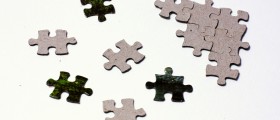Reactive Attachment Disorder
This disorder usually appears in childhood, with children who have experienced abuse or abandonment and neglect from their parents and/or loved ones. Since we are most sensitive during our childhood, many things that happen leave marks, the consequences of which may appear even later, in adult life. Divorce of the parents, sexual abuse, neglect, death or physical abuse, all may trigger attachment disorder in childhood or later in life.
Basically, children gradually develop a feeling of detachment, not wanting to form new relationships and not trusting a single person. If this attitude is left unattended, it may evolve and stick with people well into their adulthood, becoming a serious behavioral disorder, which is self-destructive, to say the least.
Signs of Attachment Disorder
There are several symptoms which need to be expressed and repeatedly shown in order for one to be diagnosed with attachment disorder. Thus, a single symptom is usually not enough for a successful and adequate diagnosis.
Adults who suffer from this disorder tend to be impulsive. However, some of them regret their actions later, while some do not. Most of them are negative most of the time, using their behavior to push others away from them.
Yet, they have a strong desire for control and manipulation of others. Thus, they might lie and cheat, only to achieve their hidden goals.
Next, since people with attachment disorder have troubles showing emotions, since they do not feel any empathy or sympathy, they have trouble with receiving emotional affection as well. In fact, they are unable of establishing closeness with other people and they refuse to let anyone give them advice or any kind of benign guidance. Simply, they trust no one.
Nevertheless, this way of living makes these people sad and depressed, feeling the pain stemming from their long term isolation. Due to the stress related to their condition, they might express anger and frustration through being destructive, cruel, hostile or prone to arguments.
However, quite often, these people hide their real personality behind a mask of charm and superficial positive traits, being capable of indulging into many long conversations with others.
Additionally, they are addictive and prone to gambling, drug abuse or even becoming workaholics. Also, they often feel miserable and completely helpless, thinking that their family is being judgmental towards them. Yet, they never take responsibility for their wrongdoings and never manage to accept criticism.
Finally, they are often confused and puzzled, lacking proper judgment which leads them to having a low attention span.
Since the reasons behind this condition are rooted deep into the childhood of the patients, it is important to treat it with therapy, nurturing and emotional reconstruction. Role playing has been shown to be an effective treatment as well. Finally, friend therapy is yet another treatment alternative.














-Signs,-Symptoms,-Treatment-And-Prevention_f_280x120.jpg)


Your thoughts on this
Loading...